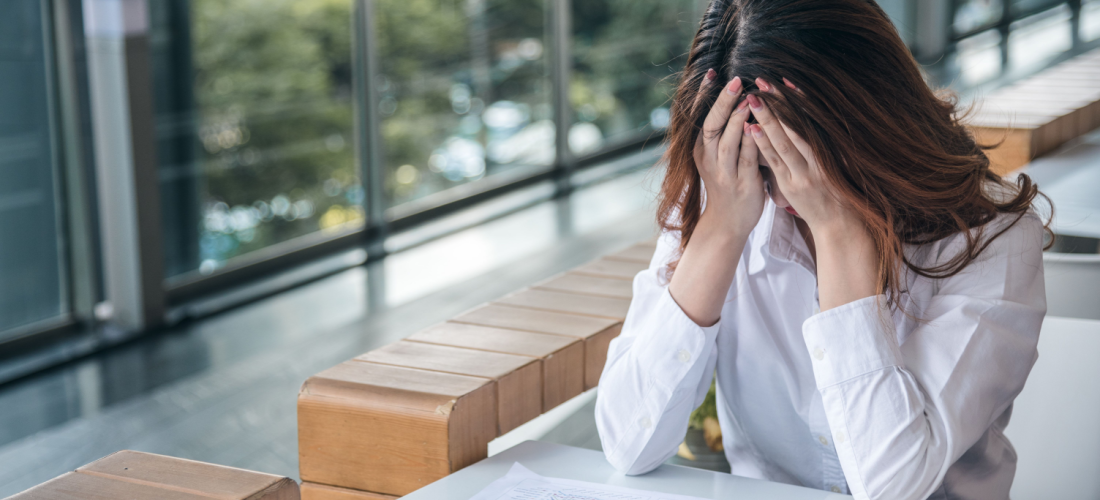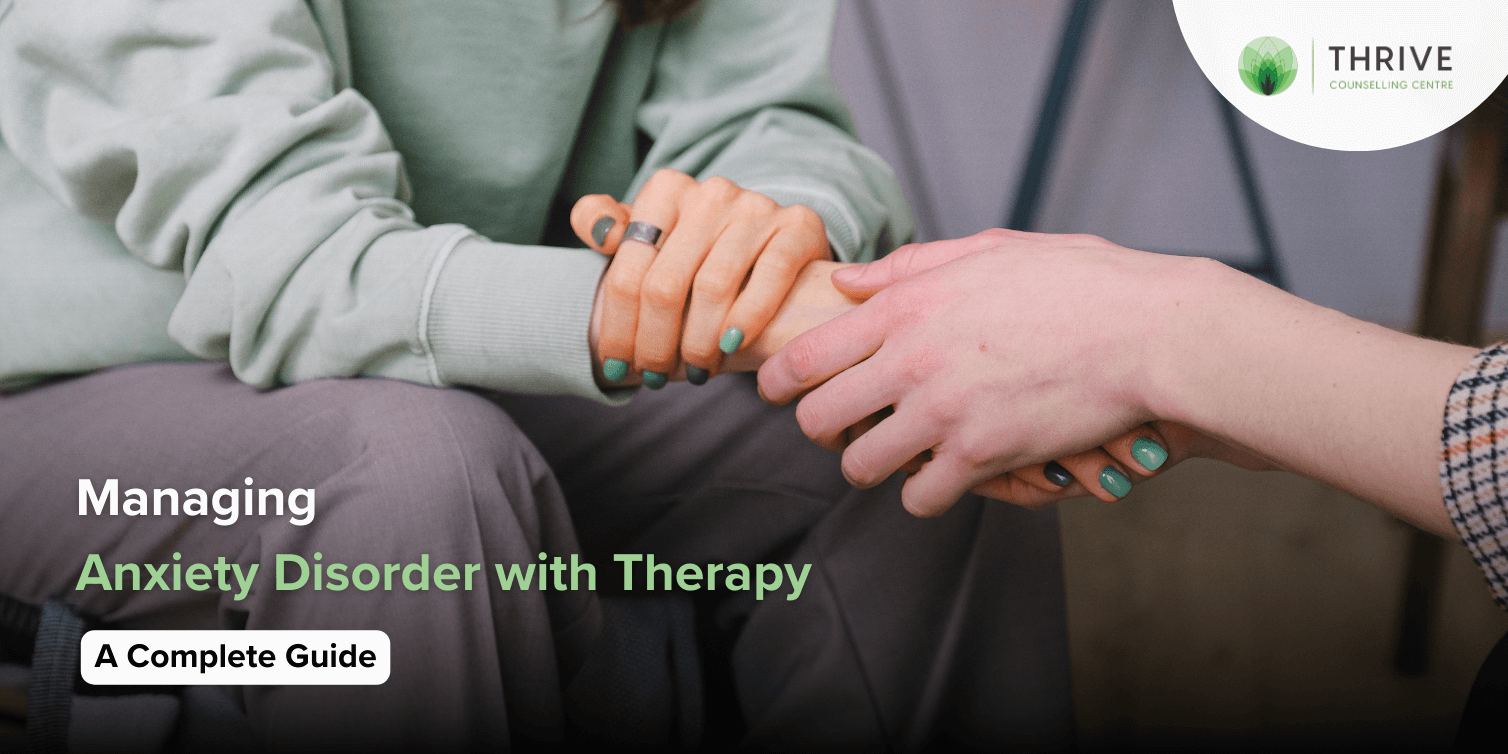Personalized counseling services for anxiety that fit your routine
Personalized counseling services for anxiety that fit your routine
Blog Article
Checking Out Different Strategies in Therapy for Stress And Anxiety Condition for Lasting Modification
When tackling stress and anxiety problems, it's necessary to discover a selection of counseling approaches. Each technique provides one-of-a-kind understandings and devices to assist you manage your signs effectively. You may locate that incorporating techniques can yield the finest results. Understanding the nuances of these approaches is key to promoting long lasting change. Suppose the ideal mix could launch a brand-new degree of emotional well-being for you?
Comprehending Anxiety Problems: A Quick Summary
Anxiety problems, which impact countless individuals worldwide, can greatly influence day-to-day live. You may experience frustrating feelings of concern or worry that appear uncontrollable. These feelings can result in physical symptoms like a racing heart, sweating, or even dizziness. Usual kinds of anxiousness problems consist of generalised anxiety problem, panic attack, and social anxiety disorder. Each has unique signs, but they all share a propensity to interrupt your routine and relationships.Understanding the source of your stress and anxiety is vital. It could come from genetics, mind chemistry, or life experiences. Acknowledging your triggers can help you handle your actions better. It is essential to bear in mind that you're not the only one in this struggle. Lots of people deal with comparable obstacles, and seeking assistance is a solid action toward feeling better. By finding out about stress and anxiety problems, you're already on the path to understanding and managing your problem better.
Cognitive-Behavioral Treatment: Challenging Negative Idea Patterns
In Cognitive-Behavioral Treatment, you'll begin by identifying the adverse idea triggers that add to your anxiousness. You'll work on changing them with even more positive options when you acknowledge these ideas. With each other, you'll build efficient coping approaches to help manage your anxiousness in day-to-day scenarios.
Identifying Adverse Idea Triggers

Acknowledging the particular triggers behind your negative thoughts can be vital in managing anxiousness when you encounter moments of distress. Begin by focusing on circumstances that provoke sensations of worry or worry. Is it a congested room, an upcoming deadline, or a discussion with certain people? Take down these instances in a journal. This will certainly assist you recognize patterns in your thinking. Notification physical feelings that accompany your adverse ideas, like a racing heart or tightness in your chest. By pinpointing these triggers, you obtain insight right into what's sustaining your anxiety. Comprehending these connections is the initial step in challenging those ideas and eventually restoring control over your psychological actions.
Replacing Ideas With Positives
Testing unfavorable thought patterns is a necessary step in changing your way of thinking and reducing anxiety. You might frequently discover on your own entraped in cycles of insecurity or devastating thinking. Instead of allowing these thoughts dictate your sensations, method changing them with realistic choices or favorable affirmations. For instance, when you assume, "I can't handle this," move it to, "I can manage difficulties one action each time." This basic modification can greatly influence your emotion. Consistently recognizing and countering these negative ideas assists create a much healthier inner discussion. Bear in mind, it takes some time and initiative, but constantly exercising this method can bring about long lasting change, empowering you to face anxiety with renewed self-confidence and resilience.
Building Coping Approaches Together
Replacing unfavorable ideas is just the start of managing anxiousness properly. To develop enduring adjustment, you need to develop coping techniques that equip you. Cognitive-Behavioral Therapy (CBT) helps you recognize and test those purposeless idea patterns. Together, you and your counselor can explore how these thoughts influence your feelings and behaviors.Start by creating useful techniques, like journaling or mindfulness exercises, that allow you to challenge anxiousness head-on. When you face your worries slowly, you'll learn to respond differently.

Mindfulness and Acceptance-Based Approaches: Cultivating Present-Moment Awareness
As you browse the complexities of anxiousness, including mindfulness and acceptance-based methods can significantly improve your capability to grow present-moment awareness. By focusing on the present moment, you'll locate that you can observe your thoughts and feelings without judgment (Counseling services for anxiety). This method helps you recognize your anxiousness without really feeling overwhelmed by it.Engaging in mindfulness exercises, such as deep breathing, body scans, or led reflections, enables you to ground yourself in your current experience. Acceptance-based approaches encourage you to embrace your emotions as opposed to deal with against them. When you approve your sensations, they shed their power over you.Incorporating these practices into your daily regimen can change just how you reply to stress and anxiety. You'll establish durability and find out to browse stressful scenarios with greater convenience. Eventually, growing present-moment awareness lays the structure for long-term modification, empowering you to lead a much more satisfying life
Exposure Treatment: Confronting Anxieties Slowly
Direct exposure therapy helps you face your anxieties in a steady method, making it much less overwhelming. You'll find out techniques to face anxiety-provoking scenarios action by step, while also constructing coping strategies to handle your reactions. This approach encourages you to take control and reduce stress and anxiety over time.
Steady Exposure Strategies

When dealing with anxiousness, progressively facing your fears can be a powerful way to reclaim control. This method, understood as progressive exposure, involves gradually subjecting on your own to the situations or things that cause your anxiety. Beginning with much less intimidating scenarios and progressively function your method as much as more tough ones. If you're worried of public talking, you might start by speaking in front of a mirror, after that progress to sharing thoughts with a close friend, and eventually address a little group. Each action assists desensitize you to the anxiety, developing your self-confidence over time. Keep in mind, it's vital to rate yourself and celebrate small victories as you relocate via this process, reinforcing your ability to take care of anxiousness properly.
Building Coping Techniques
Building effective coping strategies is important for handling stress and anxiety, specifically as you face your concerns progressively - Counseling services for anxiety. One effective technique is direct exposure therapy, where you begin by facing your anxieties in a controlled fashion. Start with less frightening scenarios and gradually work your means up to even more difficult circumstances. This gradual direct exposure aids desensitize you to anxiousness activates, making them much less overwhelming.Incorporate relaxation methods, such as deep breathing or mindfulness, to soothe your mind throughout exposure. Track your development, celebrating tiny victories along the road to enhance your self-confidence. Bear in mind, it's fine to take your time; the goal isn't perfection however constant improvement. By constructing these approaches, you'll encourage on your own to navigate anxiousness and embrace life a lot more completely
Psychodynamic Treatment: Uncovering Origin of Stress And Anxiety
Psychodynamic treatment checks out the subconscious mind, revealing the origin triggers of your anxiety. By analyzing your thoughts, sensations, and past experiences, this technique aids you reveal underlying disputes and unsettled concerns that might contribute to your current stress and anxiety. You'll function with a therapist to check out childhood experiences, partnerships, and psychological patterns that shape your actions today.As you acquire insight right into these much deeper layers of your mind, you'll start to identify how previous occasions affect your present behavior. This understanding can result in catharsis, enabling you to refine feelings you could have suppressed.Through the therapeutic connection, you can additionally recognize defense systems that may have established in time, offering a more see here clear course to transform. Inevitably, psychodynamic treatment furnishes you imp source with the tools to resolve your anxiousness at its core, promoting enduring change in your psychological health.
Integrative and Alternative Strategies: Incorporating Methods for Greater Efficacy
Incorporating various therapeutic methods can improve your journey towards managing stress and anxiety extra effectively. By combining aspects from cognitive-behavioral therapy, mindfulness techniques, and alternative strategies, you can produce an individualized strategy that addresses your unique demands. You may utilize cognitive-behavioral methods to test unfavorable thought patterns while including mindfulness exercises to ground on your own in the existing moment.Additionally, discovering holistic techniques such as yoga exercise or meditation can advertise relaxation and lower stress and anxiety signs. This blend enables you to create higher self-awareness and resilience.Experimenting with these varied methods can help you discover what resonates most with you. Keep in mind, it's regarding locating a harmony that works, as opposed to adhering to a solitary strategy. This integrative strategy not only uses instant relief yet also promotes lasting abilities for managing stress and anxiety, empowering you to redeem control over your life.
The Duty of Assistance Equipments: Structure Resilience With Link
While it could seem that managing stress and anxiety is a singular trip, having a strong support system can play a vital duty in your resilience. Surrounding yourself with understanding pals, family, or support system develops a safe room where you can freely share your experiences and sensations. When you get in touch with others, you remind on your own that you're not alone in this struggle.These relationships offer motivation and can offer functional coping methods that have helped others. It's likewise an opportunity to get perspective; friends can help you see circumstances in a different way, reducing sensations of isolation.Moreover, emotional support cultivates a sense of belonging, which can substantially ease stress and anxiety symptoms. By leaning on your assistance system, you can develop resilience and take on challenges better. Remember, connecting for assistance suggests stamina, and it can make all the distinction in your journey toward managing stress and anxiety.
Often Asked Questions
What Are the Common Signs of Stress And Anxiety Problems?
You may experience restlessness, tiredness, problem concentrating, impatience, muscle mass tension, and rest disturbances. Physical symptoms can consist of fast heart beat, sweating, and shivering. Identifying these signs early can aid you look for appropriate assistance and treatment.
How Much Time Does Therapy Generally Last for Anxiousness Disorders?
Treatment for anxiousness problems usually lasts anywhere from a couple of weeks to several months. It actually relies on your specific demands, progression, and the methods your specialist makes use of to aid you manage your anxiousness efficiently.
Can Drug Be Made Use Of Together With Therapy for Stress and anxiety?
Yes, medicine can absolutely be used alongside treatment for stress and anxiety. Integrating both methods frequently boosts treatment performance, assisting you handle signs and symptoms while checking out underlying problems through counseling (Counseling services for anxiety). Always consult your healthcare supplier for personalized advice
Exist Self-Help Approaches for Taking Care Of Stress And Anxiety?
Yes, there are a number of self-help methods for managing anxiety. You can practice mindfulness, involve in regular workout, maintain a balanced diet regimen, develop a routine, and utilize deep breathing techniques to help minimize stress and anxiety symptoms efficiently.
Just how Do I Know if I Need Specialist Help for Anxiety?

Report this page